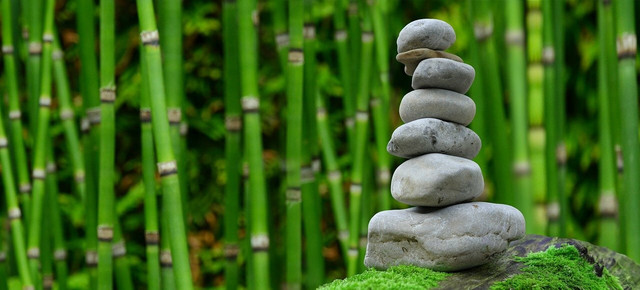
Self-reflection helps you better understand your own behaviors and motivations. You can find out here how you can learn self-reflection in practice.
We are all exposed to many different situations every day, in which we act in different ways. Sometimes we don’t quite understand ourselves why we behave the way we do. The skill of self-reflection can help you to to understand yourself better.
In general, self-reflection describes a person’s ability to perceive themselves and their own actions in a neutral manner and to view or analyze them critically. This can help you better understand yourself, your actions, and your motivations findings about your own personality. Self-reflection can be one way to develop yourself personally.
For example, self-reflective thinking makes it easier for you to find answers to questions about your skills, motives for action and values:
- Capabilities: What do you really like and what don’t you?
- Reasons: What reasons or emotions drive you?
- Values: What values are important to you?
- Successes and failures: What part did you have in certain successes, but also in mistakes?
What does science say about self-reflection?

(Photo: CC0 / Pixabay / qimono)
There are some studies that look at what self-reflection can do.
According to a 2011 study, self-reflection can improve your ability to learn. A recent 2018 study showed that self-reflection can have several positive effects. Among other things, it can help you trauma better to deal with. Self-reflection can do this by helping you become more conscious and grounded in the here and now when traumatic experiences from the past are threatening to catch up with you. In addition, through self-reflection you can improve your problem-solving skills and your resilience increase.
What are the benefits and implications of self-reflection?
Self-reflection helps you get to know yourself better. This in turn has many other effects:
- Broadening of perspectives: Through self-reflection you can broaden your perspectives. You learn to evaluate your own points of view neutrally and you may come across prejudices that you can then discard. This will make you more open to other people’s views.
- Better communication: Self-reflection can also help you improve your communication. This happens, for example, because you understand your needs and concerns better and can then express them more clearly.
- Learning for the future: Self-reflection can help you to learn something for the future from mistakes, problems or successes and to change your actions if necessary.
- Focus on solutions: During self-reflection you deal more intensively with setbacks and other problems from the past. You can learn a lot from this and look back and find solutions to past events. But you can also use this newly gained knowledge for the future and find solutions to current problems.
- Awareness: Self-reflection can help you increase your awareness. By reflecting on different areas of life, you become more aware of certain things. These could be, for example, personal strengths and weaknesses that you were not previously aware of.
- Clarity: You generally gain more clarity about your life and personality, as you deal with aspects that you may not have paid attention to before. Through self-reflection you automatically understand your own behavior better and don’t just take it for granted.
Self-reflection: Tips and methods for concrete application

(Photo: CC0 / Pixabay / Schäferle)
You can train your ability for self-reflection with different methods. In general, it is good if you are aware time out take for it, so that you can reflect in peace. Ideally, you should regularly incorporate such time-outs into your everyday life in order to develop a routine for self-reflection.
Self-reflection can be done in different ways. Try the following options and stick with the one that fits best into your everyday life:
- Meditation: When you meditate, you can let your thoughts run free without judging them. You can then take notes on your stream of thoughts and possibly gain new insights into what is bothering you at the moment.
- To go for a walk: On a walk you can switch off from everyday life and let your thoughts wander. Take a notebook with you and write down all the things that come to mind and that seem important to you.
- morning pages: Every morning, sit down for a few minutes and just write whatever comes to your mind on a piece of paper. This will give you an overview of certain topics that concern you and that are worth thinking about further.
- write diary: Writing a diary, which has become popular again in recent years under the term “journaling”, is like a dialogue with yourself: you can put your thoughts on paper and then look at them from an observational perspective. If you like, you can also write down questions that you keep coming back to. Over time, reflection may change the answers to these questions.
If you can’t immediately think of something to reflect on, these questions might inspire self-reflection:
- What wishes do I have for my life and what is missing?
- What do I do myself for my success/my satisfaction?
- Do I know what makes me happy and content?
- What am I good at?
- What character traits make me unique?
- What do I want to strive for?
When it comes to self-reflection, remember to be really honest with yourself and not lie to yourself. After all, the goal of self-reflection is not to look better in front of yourself. You should practice self-reflection to get to know all your sides and to understand what drives you.
Read more on Techzle.com:
- Autosuggestion: This is how the power of self-influencing works
- Self-efficacy: How to promote and strengthen it
- Coffee break: This is how you make the short break sustainable